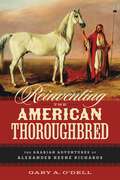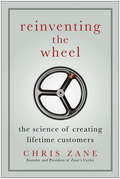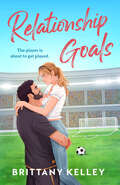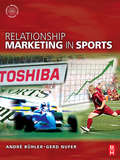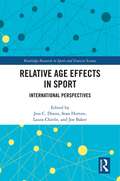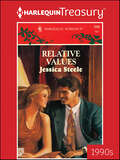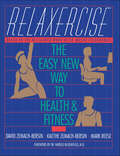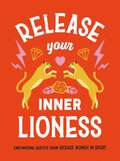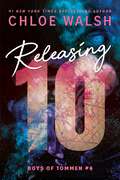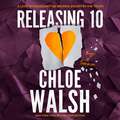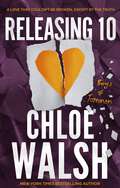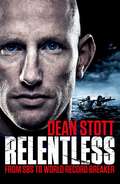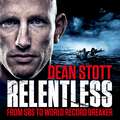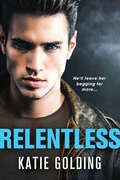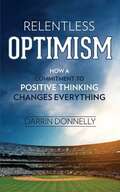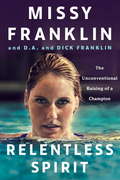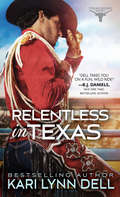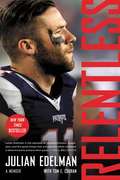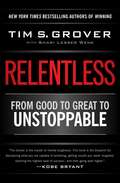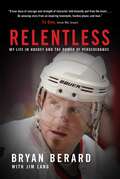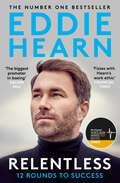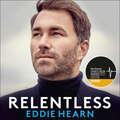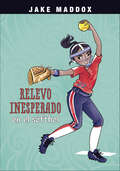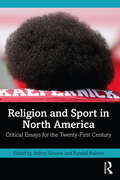- Table View
- List View
Reinventing the American Thoroughbred: The Arabian Adventures of Alexander Keene Richards
by Gary A. O'DellMost equine authorities consider Alexander Keene Richards (1827–1881) one of the nineteenth century’s most significant Thoroughbred importers and breeders. Born in Georgetown, Kentucky, and orphaned as a toddler, Richards was adopted by his grandfather, from whom he inherited not only the family farm in Georgetown but also Transylvania, a cotton plantation in East Carroll Parish, Louisiana. Horses fascinated Richards from an early age, and as his passion deepened, he became convinced that the key to improving the stamina of the Thoroughbred, in an era when American racing consisted of grueling long-distance competitions, was to crossbreed American horses with the magnificent steeds of the Middle East. As Reinventing the American Thoroughbred recounts, Richards traveled thousands of miles on expeditions into the heart of Syria to obtain Arabian stock of the purest blood. He became the first American—indeed the first Westerner—to venture into the desert to bargain directly with nomadic tribesmen for their horses. Richards transported the animals back to his grandfather’s farm near Georgetown, which he transformed into a premier breeding establishment called Blue Grass Park. He also used his Transylvania plantation in Louisiana for similar purposes. Richards relied on Ansel Williamson, an enslaved horse trainer, to prepare his Thoroughbreds for racing. Williamson developed a reputation as one of the best handlers in the nation.The Civil War interrupted Richards’s equine breeding experiment. Dependent on southern cotton produced by enslaved labor for his wealth, Richards sided with the Confederacy and was appointed volunteer aide-de-camp by General John C. Breckinridge. During his brief military career, he served at Vicksburg and later in the attack on Baton Rouge. In late 1862, he received Breckinridge’s permission to travel to England to purchase artillery for the general’s Kentucky brigade. Richards remained in London for the remainder of the war, returning to the United States after receiving amnesty. Bankrupt, he spent the rest of his life attempting to rebuild Blue Grass Park as a nationally recognized Thoroughbred facility.Richards’s life story, chronicled here for the first time by Gary A. O’Dell, is an epic tale of adventure, experimentation, and devastation that illuminates the grand history of the American Thoroughbred industry in fresh and fascinating ways.
Reinventing the Wheel: The Science of Creating Lifetime Customers
by Chris ZaneWhen Chris Zane bought his bicycle shop at age 16, his business struggled until he discovered the secret that catapulted his store into one of the largest in the country. His secret? Provide unbelievable, over the top, excessively generous customer service.Chris Zane isn't a management consultant or professor preaching a theory of customer service; he's a hands-on entrepreneur whose customer service approach has yielded enormous success. Zane has become a business celebrity, including being featured in the most recent round of American Express television ads.Featured in the New York Times and in Associated Press articles and bestowed numerous awards for its unique business practices and outstanding customer relations, Zane's Cycles has produced ideas thought by many to be pie-in-the-sky. But these counterintuitive concepts have proven to be hard-headed and effective. For example, Zane's offers a trade-in program for families who can turn in bicycles their kids have outgrown for a 100 percent credit toward new ones. Initially thought impossibly generous, this program has proven to be good business. Experience and a clear understanding of the lifetime value of a customer makes this program, and many others Zane's implements, work.In Reinventing the Wheel, commonly overlooked elements that make a business exceptional are revealed. Zane produces a case study unlike any other-one that shows the importance of investing in customers and employees and how businesses are really selling experiences, not products. His philosophies and tried-and-true methods of guerilla marketing will show entrepreneurs and business owners how to knock out the competition while thriving in any kind of economy and doing good for the community along the way.
Relationship Goals
by Brittany KelleyTed Lasso meets How to Lose a Guy in 10 Days in this steamy sports romance about an infamous star soccer player who is forced to fake date a Hollywood starlet, only to develop real feelings for her—just as she learns he was pretending and vows to get even.Abigail Hunt&’s Hollywood dreams could best be described as slow burn…but she&’s about to graduate from TV sidekick to dramatic actor. When the esteemed director of her breakout role suggests a deep dive for her part by shadowing the head of a struggling pro soccer team, she jumps at the chance to prove she&’s ready.Getting asked out by notorious grump and gorgeous star player Luke Wolfe wasn't in the plan, but suddenly her research is getting a lot more...hands-on. Their relationship quickly sets social media on fire, and Luke seems determined to prove he&’s more than his villainous reputation. But just when Abigail is happier than ever—her name in lights and her heart in good hands—the other cleat drops: Luke&’s been coerced into faking their relationship to improve the team&’s ticket sales.Furious, Abigail refuses to give Luke the satisfaction of dumping him—she decides to get even. Over-the-top dates, treating his games like fashion shows, and befriending the fan club he hates? Count her in. It&’s only a matter of time until she pushes the right buttons.She just didn&’t expect him to keep putting up with it—or to say I love you.
Relationship Marketing in Sports
by Gerd Nufer Andre BuhlerRelationship marketing is an important issue in every business. Knowing the customers and establishing, maintaining and enhancing long-term customer relationships is a key component of long-term business success. Considering that sport is such big business today, it is surprising that this crucial approach to marketing has yet to be fully recognised either in literature or in the sports business itself. Relationship Marketing in Sports aims to fill this void by discussing and reformulating the principles of relationship marketing and by demonstrating how relationship marketing can be successfully applied in practice within a sports context. Written by a unique author team of academic and practitioner experience, the book provides the reader with: the first book to apply the principles of relationship marketing specifically to a sports context case studies from around the world to provide a uniquely global approach applicable worldwide strong pedagogical features including learning outcomes, overviews, discussion questions, glossary, guided reading and web links practical advice for professional, semi-professional and non-professional sporting organisations a companion website providing web links, case studies and PowerPoint slides for lecturers. Relationship Marketing in Sports is crucial reading for both students and professionals alike and marks a turning point in the marketing of sports.
Relative Age Effects in Sport: International Perspectives (Routledge Research in Sport and Exercise Science)
by Joe Baker Sean Horton Jess C. Dixon Laura ChittleIndividual achievement in sport is often constrained by an athlete’s age relative to the peers with whom they participate. A common practice within sport and educational domains is to group youth based on their chronological ages to help promote equal competition, age appropriate instruction, and ensure participant safety. While well intended, such grouping practices can often advantage relatively older children, while disadvantaging those who are relatively younger within the same age cohort. These phenomena are known as Relative Age Effects (RAEs). Relative Age Effects in Sport: International Perspectives includes chapters from internationally recognized scholars who have examined RAEs from different perspectives (e.g., sport, mental health and wellbeing, youth development). This new volume assists in communicating and mobilizing knowledge and research about RAEs, focusing on developing feasible and attractive solutions that capture the attention of practitioners and policy makers from sport governing bodies and creating a resource that is accessible to professionals within the sport and academic communities. Relative Age Effects in Sport: International Perspectives is key reading for academics and researchers in the fields of athlete development, talent identification, coaching education, health and wellbeing, mental health and related disciplines, whilst also of interest to sport industry professionals such as coaches and policy makers.
Relative Values
by Jessica SteeleThe Will Was Outrageous, Scandalous...and Legal!Inherited wealth sure wasn't what it was cracked up to be, what with Lyle Hetherington hell-bent on making Kelsa's life one unpleasant confrontation after another.Mind you, Kelsa could certainly understand why Lyle might feel a bit peeved. His father had left her-a mere employee-half of his vast empire. And while Kelsa had gotten on well with her late boss, a bequest like that was ridiculous!So why in the world had he done it? It certainly wasn't for the reason his son arrogantly assumed, as Kelsa hadn't been the old man's mistress. But try telling that to Lyle Hetherington!
Relaxercise: The Easy New Way to Health and Fitness
by David Zemach-BersiShortlisted for the William Saroyan International Prize for WritingA physical and philosophical mediation on why we are drawn to fight each other for sport, what happens to our bodies and brains when we do, and what it all meansAnyone with guts or madness in him can get hit by someone who knows how; it takes a different kind of madness, a more persistent kind, to stick around long enough to be one of the people who does the knowing.Josh Rosenblatt was thirty-three years old when he first realized he wanted to fight. A lifelong pacifist with a philosopher’s hatred of violence and a dandy’s aversion to exercise, he drank to excess, smoked passionately, ate indifferently, and mocked physical activity that didn’t involve nudity. But deep down inside there was always some part of him that was attracted to the idea of fighting. So, after studying Muay Thai, Krav Maga, Brazilian jiu-jitsu, and boxing, he decided, at age forty, that it was finally time to fight his first—and only—mixed martial arts match: all in the name of experience and transcending ancient fears.An insightful and moving rumination on the nature of fighting, Why We Fight takes us on his journey from the bleachers to the ring. Using his own training as an opportunity to understand how the sport illuminates basic human impulses, Rosenblatt weaves together cultural history, criticism, biology, and anthropology to understand what happens to the human body and mind when under attack, and to explore why he, a self-described “cowardly boy from the suburbs,” discovered so much meaning in putting his body, and others’, at risk.From the psychology of fear to the physiology of pain, from Ukrainian shtetls to Brooklyn boxing gyms, from Lord Byron to George Plimpton, Why We Fight is a fierce inquiry into the abiding appeal of our most conflicted and controversial fixation, interwoven with a firsthand account of what happens when a mild-mannered intellectual decides to step into the ring for his first real showdown.
Release Your Inner Lioness: Empowering Quotes from Kickass Women in Sport: Crush Your Goals, Celebrate Your Strength and Live Life to the Full
by Harriet DyerSupercharge your game and claim your victory with this powerful collection of uplifting words from kickass women in sportInside every woman is a lioness just waiting to break free. This feisty feline is independent, brave, strong and agile. She is ready to acknowledge and shout about her power. She wants to crush her goals. She believes she deserves to live her life courageously and to the full. All she needs is for you to open your heart and set her free.This small-but-mighty book is the perfect companion on your journey to attaining the unshakeable confidence of a lioness. Inside you’ll find empowering quotes from sporting legends all the way from Billie Jean King right up to Leah Williamson. Let these bold words from badass women inspire you to find your pride of supportive sisters, reach for your dreams, and celebrate every success along the way.Stay fierce and fearless – unleash your inner lioness and hear her roar!
Releasing 10 (Boys of Tommen #6)
by Chloe WalshHe was her anchor. She was his storm. Together, they were everything—and it still wasn't enough.From Chloe Walsh, the international bestselling author of the viral Boys of Tommen series, comes a devastatingly raw, achingly beautiful love story that will rip your heart out and patch it back together.Lizzie Young has always felt she was too much everything. Diagnosed with bipolar disorder at a young age, she's never fit in with her family, her friends, her community. Lizzie wants to be accepted and understood, but with few family or friends in her corner, she carries her burdens and her trauma on her own.But when she meets a kind boy on the school bus, things start to look bright for the first time in her life…Hugh Biggs has an old soul and the wisdom of someone far beyond his years. A young man with a sharp mind and a firm code of ethics, he sees something in Lizzie Young that he can't resist. He wants to be her everything and shoulder her burden. And Lizzie wants that too.Lizzie and Hugh's bond seems unbreakable — their chemistry is electric, their love is potent, and their connection is soul deep – but even the truest love can be shaken by forces beyond control.Releasing 10 is Perfect for Readers Looking For:Friends-to-lovers New Adult Irish Romance"A soul-searing romance that absolutely gutted me—in the best way."Emotional, character-driven, and packed with slow-burn chemistryBold, unflinching portrayal of bipolar disorder, trauma, and healingPart of the Boys of Tommen universe, but can be read as a standaloneWarning: Releasing 10 tackles several sensitive topics, including childhood abuse, sexual trauma, self-harm, and suicide. It includes explicit sexual content and graphic violence. Reader discretion is advised.
Releasing 10 (The Boys of Tommen)
by Chloe WalshReleasing 10 is an epic and unforgettable love story in the international bestselling and TikTok-phenomenon The Boys of Tommen series, from Chloe Walsh.The power and pain of first love has never been more deeply felt than in Chloe Walsh's extraordinary stories about the irresistible Boys of Tommen, which will give you the ultimate book hangover..........................A love that couldn't be broken, except by the truth.Lizzie Young has always felt she was too much everything. Diagnosed with bipolar disorder at a young age, she's never fit in with her family, her friends, her community. Lizzie wants to be accepted and understood, but with few people in her corner, she's carried her burdens and her trauma on her own.But when she meets a kind boy on the school bus, things start to look bright for the first time in her life . . .Hugh Biggs has an old soul and the wisdom of someone far beyond his years. A young man with a sharp mind and a firm code of ethics, he sees something in Lizzie Young that he can't resist. He wants to be her everything and shoulder her burden. And Lizzie wants that too.Lizzie and Hugh's bond seems unbreakable - their chemistry is electric, their love is potent, and their connection is soul deep - but even the truest love can be shaken by forces beyond control..........................Want more of The Boys of Tommen? Read all of the series so far:Binding 13Keeping 13Saving 6Redeeming 6Taming 7
Releasing 10 (The Boys of Tommen)
by Chloe WalshReleasing 10 is an epic and unforgettable love story in the international bestselling and TikTok-phenomenon The Boys of Tommen series, from Chloe Walsh.The power and pain of first love has never been more deeply felt than in Chloe Walsh's extraordinary stories about the irresistible Boys of Tommen, which will give you the ultimate book hangover..........................A love that couldn't be broken, except by the truth.Lizzie Young has always felt she was too much everything. Diagnosed with bipolar disorder at a young age, she's never fit in with her family, her friends, her community. Lizzie wants to be accepted and understood, but with few people in her corner, she's carried her burdens and her trauma on her own. But when she meets a kind boy on the school bus, things start to look bright for the first time in her life . . .Hugh Biggs has an old soul and the wisdom of someone far beyond his years. A young man with a sharp mind and a firm code of ethics, he sees something in Lizzie Young that he can't resist. He wants to be her everything and shoulder her burden. And Lizzie wants that too. Lizzie and Hugh's bond seems unbreakable - their chemistry is electric, their love is potent, and their connection is soul deep - but even the truest love can be shaken by forces beyond control..........................Want more of The Boys of Tommen? Read all of the series so far:Binding 13Keeping 13Saving 6Redeeming 6Taming 7
Relentless
by Dean Stott'Dean's journey from the Special Boat Service to intrepid adventurer is truly inspirational.' - Sir Ranulph Fiennes'An extraordinary tale of courage and adventure. Dean's story is inspirational.' - Levison Wood'Dean's relentless determination to help those who face many mental health battles is incredible and admirable - he's a hero to many.' - Bear GryllsFor readers of Ant Middleton, Jason Fox, Brian Wood, Bear Grylls and Billy Billingham comes the extraordinary, inspirational story of Special Boat Service soldier and adventurer Dean Stott.Everybody has heard the SAS motto that who dares wins, but special forces warrior Dean Stott also lives his life by another powerful mantra - that of the relentless pursuit of excellence. In 16 years of service, Dean rose to the top of Britain's fighting force, taking part of some of the most daring and dangerous operations in the war on terror, and then in the private security force, where missions included him singlehandedly evacuating the Canadian Embassy in Libya.But then, following a horrific parachuting accident, Dean's dream career was cut short, and his ethos was put to its toughest test. Just like the day when Dean's dad said that he could never make it as a soldier, Dean's doctors told him that he would never again perform at the elite level.To put it mildly, Dean disagreed, but even those that knew him were staggered by the mission that he set himself - the man who didn't own a bike would cycle the Pan American Highway, a 14,000 mile route that stretches from Argentina to Alaska, passing through some of the most dangerous countries in the world. A passionate mental health campaigner, Dean decided to up the stakes further by setting himself the task of raising a million pounds for charity. With two world records also in his sights, the stage was set for Dean to rediscover the tenacity, bravery, and downright doggedness that saw him rise to the top of the Special Forces. The final curveball arrived in the shape of a wedding invitation from his old friend Prince Harry - would he make it back in time for the royal wedding, or at all? Dean Stott is Relentless, and this is his story.
Relentless
by Dean StottFor readers of Ant Middleton, Jason Fox, and SAS: Who Dares Wins, comes the extraordinary story of Special Forces soldier Dean Stott.Everybody has heard the SAS motto that who dares wins, but special forces warrior Dean Stott also lives his life by another powerful mantra - that of the relentless pursuit of excellence. In 16 years of service, Dean rose to the top of Britain's fighting force, taking part of some of the most daring and dangerous operations in the war on terror.But then, following a horrific parachuting accident, Dean's dream career was cut short, and his ethos was put to its toughest test. Just like the day when Dean's dad said that he could never make it as a soldier, Dean's doctors told him that he would never again perform at the elite level.To put it mildly, Dean disagreed, but even those that knew him were staggered by the mission that he set himself - the man who didn't own a bike would cycle the Pan American Highway, a 14,000 mile route that stretches from Argentina to Alaska, passing through some of the most dangerous countries in the world. A passionate mental health campaigner, Dean decided to up the stakes further by setting himself the task of raising a million pounds for charity. With two world records also in his sights, the stage was set for Dean to rediscover the tenacity, bravery, and downright doggedness that saw him rise to the top of the Special Forces. The final curveball arrived in the shape of a wedding invitation from his old friend Prince Harry - would he make it back in time for the royal wedding, or at all? Dean Stott is Relentless, and this is his story.(P) 2019 Headline Publishing Ltd
Relentless (Bad Reputation #2)
by Katie GoldingShe's always been untouchable. Forbidden. Off-limits.Too bad I never did play by the rules. I've spent my whole damn life making the wrong calls. Not that anyone ever notices—whether on the track or back home, I'm always in the shadow of my perfect big brother. But anonymity has its perks sometimes...like when the firmly off-limits ex of my biggest rival finally looks my way.Chiara Martes. Gorgeous, smart, funny, legs just made to wrap around your waist and a smile that makes my heart race faster than anything.She claims she's just looking for some fun on the side, and I'm exactly the kind of man who can give it to her. But off-the-charts sexual chemistry (hooking up here, there, everywhere we won't get caught...and some places we might) turns into unexpected feelings we've got to keep secret no matter the cost.And somehow, before we know it, this desperate thing between us is threatening to destroy us all.
Relentless Optimism: How a Commitment to Positive Thinking Changes Everything (Sports for the Soul)
by Darrin DonnellyThis is a book for anyone who has ever questioned whether positive thinking really "works." It's also a book for those who have tried to develop a more positive attitude, but have found it difficult to eliminate the voices of fear, doubt, and cynicism. This is a book for anyone who wants to put optimism to work in their life with practical, proven techniques. <p><p> In this inspirational fable, you'll meet Bobby Kane, a 31-year-old minor league baseball player who realizes his dream of making it to the majors is finally coming to a disappointing end. His dream, he believes, was not meant to be. That is, until Bobby meets an unconventional manager named Wally Hogan. More mental coach than baseball manager, Wally teaches Bobby that if you want to change your life, you have to first change your thinking. <p><p> As you'll see in this book, developing a positive mindset gives Bobby a renewed chance to make his dreams come true-not just in baseball, but in all areas of his life. Wally teaches Bobby what it means to be an optimist and what it takes to maintain a positive attitude through the ups and downs of life. He teaches him proven, real-world techniques for building and sustaining optimism. These methods have an immediate impact on Bobby's life and they will have an immediate impact on yours as well. <p><p> This book will show you just how powerful a positive attitude can be and it will teach you how to use positive thinking to make your biggest dreams come true.
Relentless Spirit: The Unconventional Raising of a Champion
by Daniel Paisner D. A. Franklin Dick Franklin Missy FranklinWhat does it take to become a champion? Gold medalist Missy Franklin, along with her parents, D.A. and Dick, tell the inspirational and heartwarming story of how Missy became both a legendary athlete and a happy and confident woman, something they accomplished by doing things their own way and making the right choices for their family. The word relentless has many meanings for swimmer Missy Franklin. In the pool, it reminds her to remain steady and persistent, unyielding in intensity and strength. In life, it tells her to reach down for her very best, even when it feels like there's nothing left. The motto "don't quit" doesn't do it for Missy, but relentless gets her where she needs to be. And when Missy faces a challenge or a setback, her relentless spirit is what empowers her to learn, adapt, and move forward into the future. In Relentless Spirit, Missy and her parents, D.A. and Dick Franklin, share the story of how Missy became the athlete she is today, a six-time Olympic medalist, five of them gold. Since her Olympic debut in London's 2012 games--when Missy was just seventeen--people who have met the Franklins or seen them on TV have wondered what it was like to raise such a champion. What was the training like? How did Missy handle school? How did the family find the right facilities, coaches, and support network? The story that Missy, and her parents, share inside is both inspiring and heartwarming, explaining how she became both a legendary athlete and a happy and confident woman, something they accomplished by doing things their own way and making the right choices for their family, which includes Missy's faith journey, something she writes about with inspirational candor. Including the highs, the tough moments, and everything in-between, Relentless Spirit tells the story of a woman--and a family--full of love, heart, faith, and resilience.
Relentless in Texas (Texas Rodeo #6)
by Kari Lynn Dell"Look out, world! There's a new cowboy in town." —CAROLYN BROWN, New York Times Bestselling Author for Tangled in TexasThere's a reason they call this cowboy relentlessGil Sanchez was once rodeo's biggest and baddest hotshot. Now he's thirteen years sober and finally free of the pain that ended his skyrocketing career. Given one last, near-miraculous shot to claw his way back to rodeo glory, he can't let fantasies of happily-ever-after dull his razor edge...but Carmelita White Fox is every dream he's never let himself have.And from the moment he saw the spark of challenge in her eyes, he hasn't been able to look away.Carma may come from a Blackfeet family noted for its healing abilities, but even she knows better than to try to fix this scarred, cynical, and incredibly sexy cowboy. Yet she's the only one who can reach past Gil's jaded armor, and the fiercely loyal heart buried beneath the biting cynicism is impossible to resist. Gil needs Carma just as much as she needs him, but as the pressure builds and the spotlight intensifies, they'll have to fight like hell to save the one thing neither can live without.Texas Rodeo Series:Reckless in Texas (Book 1)Tangled in Texas (Book 2)Tougher in Texas (Book 3)Fearless in Texas (Book 4)Mistletoe in Texas (Book 5)Relentless in Texas (Book 6)What People Are Saying about the Texas Rodeo series:"A fun, wild ride! You need to pick up a Kari Lynn Dell."—B.J. Daniels, New York Times bestselling author, for Fearless in Texas"Real ranchers. Real rodeo. Real romance."—Laura Drake, RITA award-winning author, for Reckess in Texas"A wonderful HEA ending that is hard-earned and never predictable. This book has impressed me"—USA Today Happy Ever After for Tangled in Texas"The rodeo setting rings with authenticity and vibrant color, and the hero and heroine are layered and well-developed, their relationship romantic and realistic."—BookPage for Tougher in Texas"[A] gorgeously written second-chance romance. It's also an exciting and authentic look into the world of rodeo and a deep exploration of family...Dell continues to be a standout in western romance."—Booklist for Mistletoe in Texas
Relentless: A Memoir
by Julian EdelmanBill Belichick: "Julian is the epitome of competitiveness, toughness, and the great things that are possible when someone is determined to achieve their goals."Tom Brady: "It's a privilege for me to play with someone as special as Julian." The Super Bowl champion wide receiver for the New England Patriots shares his inspiring story of an underdog kid who was always doubted to becoming one of the most reliable and inspiring players in the NFL. When the Patriots were down 28-3 in Super Bowl LI, there was at least one player who refused to believe they would lose: Julian Edelman. And he said so. It wasn't only because of his belief in his teammates, led by the master of the comeback, his friend and quarterback Tom Brady-or the coaching staff run by the legendary Bill Belichick. It was also because he had been counted out in most of his life and career, and he had proved them all wrong. Whether it was in Pop Warner football, where his Redwood City, California, team won a national championship; in high school where he went from a 4'10", 95-pound freshman running back to quarterback for an undefeated Woodside High team; or college, where he rewrote records at Kent State as a dual-threat quarterback, Edelman far exceeded everyone's expectations. Everyone's expectations, that is, except his own and those of his father, who took extreme and unorthodox measures to drive Edelman to quiet the doubters with ferocious competitiveness. When he was drafted by the Patriots in the seventh round, the 5'10" college quarterback was asked to field punts and play wide receiver, though he'd never done either. But gradually, under the tutelage of a demanding coaching staff and countless hours of off-season training with Tom Brady, he became one of the NFL's most dynamic punt returners and top receivers who can deliver in the biggest games. Relentless is the story of Edelman's rise, and the continuing dominance of the Patriot dynasty, filled with memories of growing up with a father who was as demanding as any NFL coach, his near-constant fight to keep his intensity and competitiveness in check in high school and college, and his celebrated nine seasons with the Patriots. Julian shares insights into his relationships and rivalries, and his friendships with teammates such as Tom Brady, Wes Welker, Matt Slater, and Randy Moss. Finally, he reveals the story behind "the catch" and life on the inside of a team for the ages. Inspiring, honest, and unapologetic, Relentless proves that the heart of a champion can never be measured.*Features a limited edition poster of Edelman inside book jacket.
Relentless: From Good to Great to Unstoppable (Tim Grover Winning Series)
by Shari Wenk Tim S. GroverFOR MORE THAN TWO DECADES, LEGENDARY TRAINER TIM GROVER HAS TAKEN THE GREATS--MICHAEL JORDAN, KOBE BRYANT, DWYANE WADE, AND DOZENS MORE--AND MADE THEM GREATER. NOW, FOR THE FIRST TIME EVER, HE REVEALSWHAT IT TAKES TO GET THOSE RESULTS,SHOWING YOU HOW TO BE RELENTLESS ANDACHIEVE WHATEVER YOU DESIRE. DIRECT, BLUNT, AND BRUTALLY HONEST, Grover breaks down what it takes to be unstoppable: you keep going when everyone else is giving up, you thrive under pressure, you never let your emotions make you weak. In "The Relentless 13," he details the essential traits shared by the most intense competitors and achievers in sports, business, and all walks of life. Relentless shows you how to trust your instincts and get in the Zone; how to control and adapt to any situation; how to find your opponent's weakness and attack. Grover gives you the same advice he gives his world-class clients--"don't think"--and shows you that anything is possible. Packed with previously untold stories and unparalleled insight into the psyches of the most successful and accomplished athletes of our time, Relentless shows you how even the best get better . . . and how you can too.
Relentless: My Life in Hockey and the Power of Perseverance
by Jim Lang Bryan BerardFormer NHL star Bryan Berard shares the inspiring story of his life on and off the ice—from finding early success in the league and suffering a life-changing eye injury to discovering the inner strength to overcome whatever life threw at him and continue to play the game he loved.&“My career is over,&” I said. &“I&’m never going to play in the NHL again.&” My mom turned to me, a stern look on her face. &“&‘Never&’ does not exist in our family&’s vocabulary.&” On March 11, 2000, Bryan Berard&’s life changed forever. One moment, he was a young hockey star, a former first overall pick and Olympian who had a long, bright career ahead of him. The next, he was writhing on the ice, his eye slashed by a wayward stick. The doctors feared Bryan might lose his eye. It seemed certain that he would never play hockey again. But ever since his childhood, Bryan had refused to believe that anything was impossible. With the support of his family behind him and his own inner determination driving him forward, Bryan not only recovered, but made a triumphant return to the NHL just two years after his injury. It seemed that the worst was behind him. But there were storm clouds on the horizon. Injuries continued to plague him throughout the rest of his career, which saw him move from North America to Russia to continue to play the game he loved. Reports of steroid use cast a shadow over his accomplishments. And then, just as he was about to retire, Berard learned that his long-time financial adviser had defrauded him, several other hockey stars, and others out of millions of dollars in life savings. Despite every setback, though, Berard refused to give up. He nearly lost an eye, but he never lost sight of what was most important in his life. Funny, honest, and inspiring, Berard&’s memoir is a tribute to the resilience and perseverance of the human spirit.
Relentless: SHORTLISTED FOR THE SPORTS BOOK AWARDS 2021
by Eddie Hearn__________ SHORTLISTED FOR THE TELEGRAPH SPORTS BOOK AWARDS 2021 *The Sunday Times Number One Business Bestseller*Out now: the knockout book about success and mindset, by one of boxing's most respected and influential promoters.'[Relentless] fizzes with Hearn's work ethic' - Financial Times __________What does it take to succeed? What is the mindset required to be the best? How do you stay at the top of your field? How do you come back from failure? Eddie Hearn knows what it takes. In his remarkable career, Hearn has worked alongside some of the biggest names in sports entertainment and has seen first-hand the grit and relentless determination that it takes to succeed. Structured around the key skills that Eddie Hearn values the most, this book looks at his business, life, and the drive to succeed. Covering subjects such as discipline, passion, preparation, motivation and failure, this book shows you what it takes to get the most in your life and career. In this insightful and revealing book, Eddie talks about the highs and lows of his career - from negotiating a billion dollar boxing deal to selling out Wembley for the Joshua Klitschko fight - and draws the valuable lessons that we can learn from boxing's toughest performers.__________'Arguably the world's most powerful boxing promoter' - Financial Times'The most powerful man in British boxing' Business Insider'Eddie Hearn has been at the forefront of boxing's resurgence' GQ'The biggest promoter in boxing' Square Mile __________The perfect book for when life deals a knockout blow, an invaluable guide about making the most from life, drawn from the hard-won lessons of one of the most successful boxing promoters in the world.
Relentless: WINNER AT THE SPORTS BOOK AWARDS 2021
by Eddie Hearn***THE FIRST BOOK BY EDDIE HEARN, AN INSPIRATIONAL AND MOTIVATIONAL GUIDE TO SUCCESS***__________What does it take to succeed? What is the mindset required to be the best? How do you stay at the top of your field? How do you come back from failure? Eddie Hearn knows what it takes. In his remarkable career, Hearn has worked alongside some of the biggest names in sports entertainment and has seen first-hand the grit and relentless determination that it takes to succeed. Structured around the key skills that Eddie Hearn values the most, this book looks at his business, life, and the drive to succeed. Covering subjects such as discipline, passion, preparation, motivation and failure, this book shows you what it takes to get the most in your life and career. In this insightful and revealing book, Eddie talks about the highs and lows of his career - from negotiating a billion dollar boxing deal to selling out Wembley for the Joshua Klitschko fight - and draws the valuable lessons that we can learn from the boxing's toughest performers.(P) 2020 Hodder & Stoughton Ltd
Relevo inesperado en el sóftbol
by Jake MaddoxRaisa Kumar juega al sóftbol desde hace años, y gracias al apoyo de su equipo, los Tigres, figura entre las mejores lanzadoras de la liga. Cuando Annie, una nueva jugadora, se une al equipo y quiere aprender a ser lanzadora, Raisa no duda en ofrecer su ayuda. Pero está convencida de que su método es el mejor, lo que funciona para ella ha de funcionar para Annie. ¿Aprenderá Raisa a dar un paso atrás y compartir el montículo por el bien de su equipo? Raisa Kumar has been playing softball for years, and thanks to the support and encouragement of her team, the Tigers, she's one of the best pitchers in the league. When a new girl, Annie, joins the team and wants to learn how to pitch, Raisa is eager to help. But Raisa is sure her way is the best way, what words for her has to work for Annie. Can Raisa lean to step back and share the mound for the good of her team?
Relief Pitcher
by R. G. EmeryBaseball story about a rookie with confidence and pressure problems. He learns to deal with these and becomes a success.
Religion and Sport in North America: Critical Essays for the Twenty-First Century (A\ferris And Ferris Book Ser.)
by Randall Balmer Jeffrey ScholesFrom athletes praising God to pastors using sport metaphors in the pulpit, the association between sport and religion in North America is often considered incidental. Yet religion and sport have been tightly intertwined for millennia and continue to inform, shape, and critique one another. Moreover, sport, rather than being a solely secular activity, is one of the most important sites for debates over gender, race, capitalism, the media, and civil religion. Traditionally, scholarly writings on religion and sport have focused on the question of whether sport is a religion, using historical, philosophical, theological, and sociological insights to argue this matter. While these efforts sought to answer an important question, contemporary issues related to sports were neglected, such as globalization, commercialization, feminism, masculinity, critical race theory, and the ethics of doping. This volume contains lively, up-to-date essays from leading figures in the field to fill this scholarly gap. It treats religion as an indispensable prism through which to view sports, and vice versa. This book is ideal for students approaching the topic of religion and sport. It will also be of interest to scholars studying sociology of religion, sociology of sport, religion and race, religion and gender, religion and politics, and sport in general.
